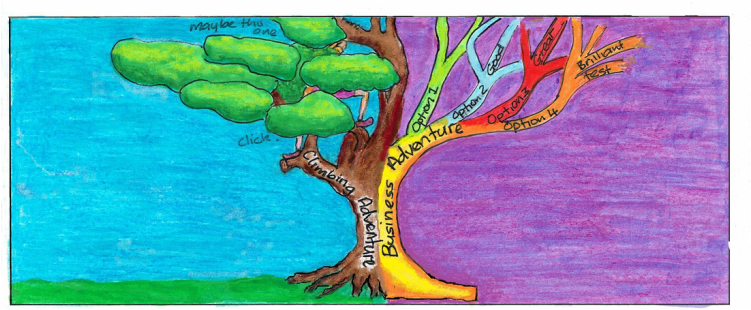Have you ever been cut off by a driver when you’re trying to do a tricky lane change? It happened to us the other day. As we moved to merge in with a busy lane of traffic a driver in a van pulled out from the lane we were in and proceeded to roar past us.
Our first reaction was what an impatient, inconsiderate, unsafe person. The whole of our car was certain he was probably just rude. How quick we were to assume the other driver's personality.
The reality was though we knew nothing about the driver. For all we know there may have been a host of reasons he could have been in a rush, he may have been late to pick up someone off a plane, one of the occupants in his car may have been sick, he could have been racing to take his daughter to an interview for her dream job. While none of these excuse dangerous driving, they are a reminder that this behaviour was more likely to have been motivated by circumstance rather than a personality flaw.
This need to assert personality as the cause of behaviours which are more a result of what is happening or has happened for a person is called “Fundamental Attribution Error”. It occurs a lot and we are all prone to it.
One of the big problems with this error when working through a change process is that the moment we believe that a person's actions and behaviours are caused largely by their personality we then see change as much harder. When it is personality we believe it is innate. However, when it is driven by external factors we feel more able to influence or alter those in order to bring about a change in what the person does.
While behaviour is the result of circumstance we are also more willing to intervene and feel we have the ability to support changes in the environment.
When it is in the personality we may feel empowered to say something. But often we do this in a way that points out the personality flaw, as opposed to providing support to identify what circumstance may have created the issue and assistance to alleviate the causes.
So next time you are ready to blame a person's personality for what they are doing, take a little time and see if you can find the other factors that may be creating the behaviour. When you do you are likely to find that resolving the issues is easier than you may at first have thought.
Our first reaction was what an impatient, inconsiderate, unsafe person. The whole of our car was certain he was probably just rude. How quick we were to assume the other driver's personality.
The reality was though we knew nothing about the driver. For all we know there may have been a host of reasons he could have been in a rush, he may have been late to pick up someone off a plane, one of the occupants in his car may have been sick, he could have been racing to take his daughter to an interview for her dream job. While none of these excuse dangerous driving, they are a reminder that this behaviour was more likely to have been motivated by circumstance rather than a personality flaw.
This need to assert personality as the cause of behaviours which are more a result of what is happening or has happened for a person is called “Fundamental Attribution Error”. It occurs a lot and we are all prone to it.
One of the big problems with this error when working through a change process is that the moment we believe that a person's actions and behaviours are caused largely by their personality we then see change as much harder. When it is personality we believe it is innate. However, when it is driven by external factors we feel more able to influence or alter those in order to bring about a change in what the person does.
While behaviour is the result of circumstance we are also more willing to intervene and feel we have the ability to support changes in the environment.
When it is in the personality we may feel empowered to say something. But often we do this in a way that points out the personality flaw, as opposed to providing support to identify what circumstance may have created the issue and assistance to alleviate the causes.
So next time you are ready to blame a person's personality for what they are doing, take a little time and see if you can find the other factors that may be creating the behaviour. When you do you are likely to find that resolving the issues is easier than you may at first have thought.







 RSS Feed
RSS Feed
